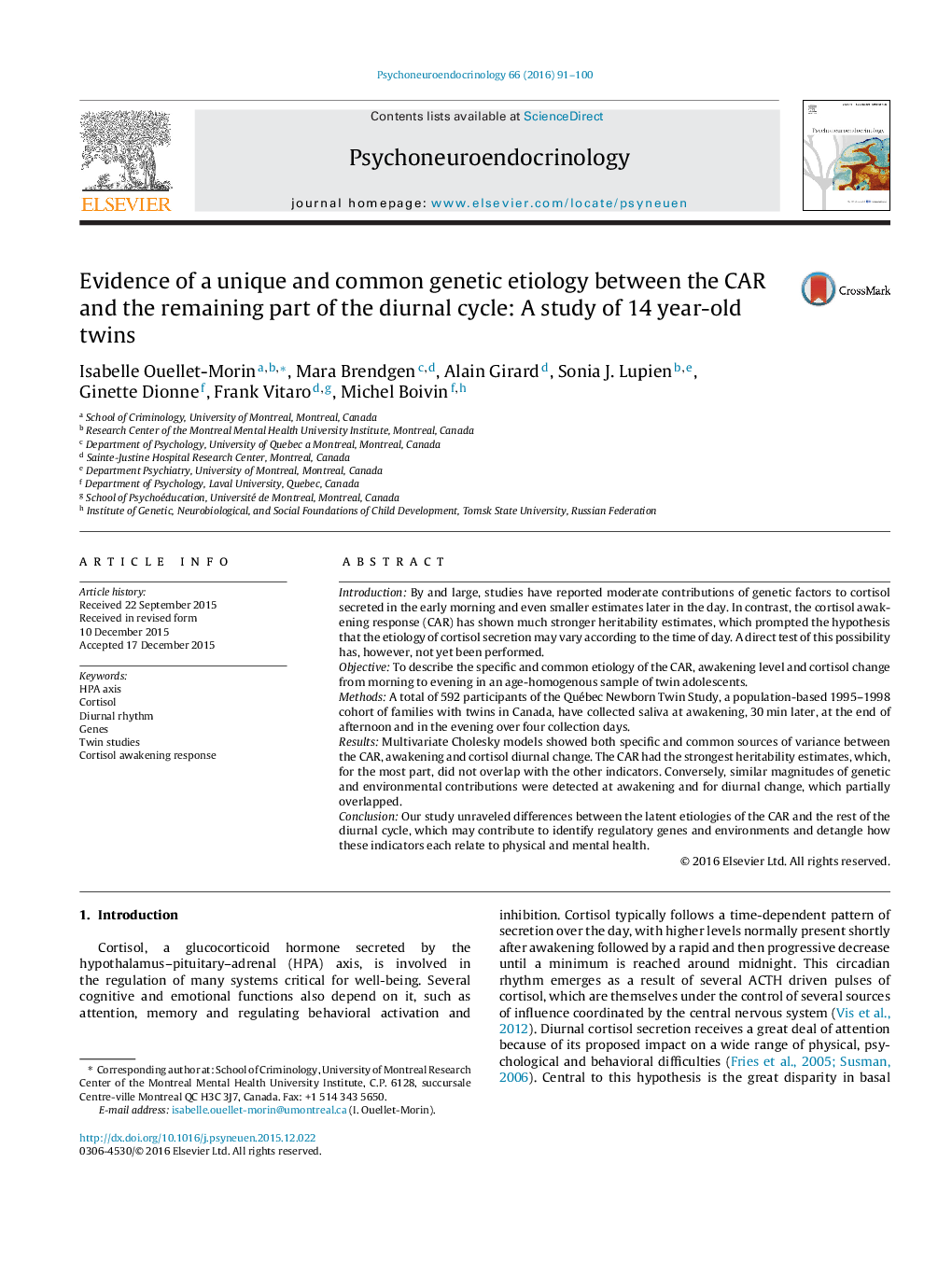| Article ID | Journal | Published Year | Pages | File Type |
|---|---|---|---|---|
| 336312 | Psychoneuroendocrinology | 2016 | 10 Pages |
•Higher heritability of the diurnal cortisol secretion is found in the morning.•Distinct genetic and environmental etiology is noted across the diurnal cycle.•The CAR may be regulated by distinct mechanisms than the rest of the diurnal cycle.
IntroductionBy and large, studies have reported moderate contributions of genetic factors to cortisol secreted in the early morning and even smaller estimates later in the day. In contrast, the cortisol awakening response (CAR) has shown much stronger heritability estimates, which prompted the hypothesis that the etiology of cortisol secretion may vary according to the time of day. A direct test of this possibility has, however, not yet been performed.ObjectiveTo describe the specific and common etiology of the CAR, awakening level and cortisol change from morning to evening in an age-homogenous sample of twin adolescents.MethodsA total of 592 participants of the Québec Newborn Twin Study, a population-based 1995–1998 cohort of families with twins in Canada, have collected saliva at awakening, 30 min later, at the end of afternoon and in the evening over four collection days.ResultsMultivariate Cholesky models showed both specific and common sources of variance between the CAR, awakening and cortisol diurnal change. The CAR had the strongest heritability estimates, which, for the most part, did not overlap with the other indicators. Conversely, similar magnitudes of genetic and environmental contributions were detected at awakening and for diurnal change, which partially overlapped.ConclusionOur study unraveled differences between the latent etiologies of the CAR and the rest of the diurnal cycle, which may contribute to identify regulatory genes and environments and detangle how these indicators each relate to physical and mental health.
